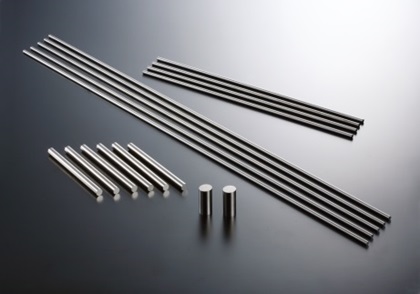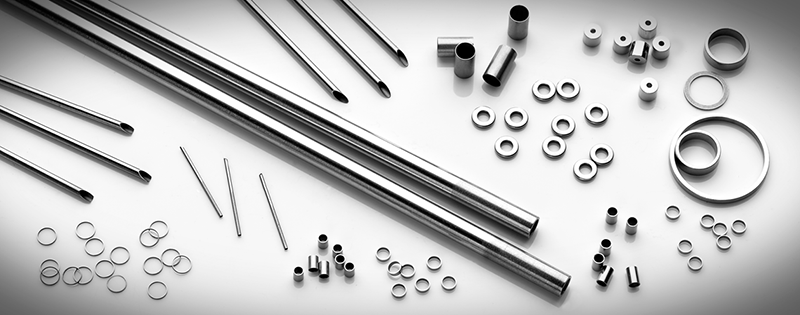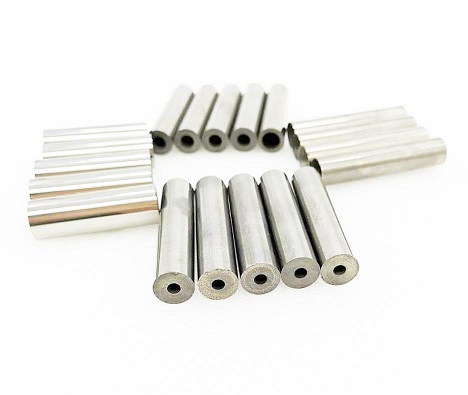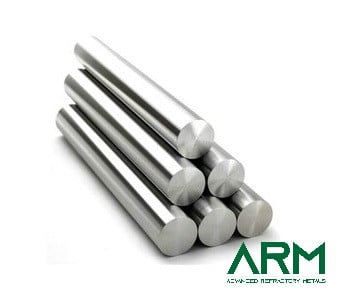Applications of Tungsten in The Field of Alloys

Applications of Tungsten in The Field of Alloys
Tungsten is a chemical element with the chemical symbol W and atomic number 74. After Carbon, Tungsten has the highest melting point of all elements. Tungsten is among the heaviest metals found on Earth. It has excellent high-temperature mechanical properties, with the lowest expansion coefficient and highest conductivity of all metals, which has been widely used in the field of alloys. In this article, we'll talk about the applications of tungsten in the field of alloys.

Applications of Tungsten in The Field of Alloys
Steel
Tungsten has a high hardness and its density is close to that of gold, so it can improve the strength, hardness, and wear resistance of steel. Tungsten is an important alloy element, which is widely used in the production of various steels.
Common tungsten steels include high-speed steel, tungsten steel, and tungsten-cobalt magnetic steel with high magnetization and coercive force, and these steels are mainly used in the manufacture of various tools, such as drill bits, milling cutters, drawing dies, female dies and male dies.
Cemented Carbide
Tungsten carbide has high wear resistance and is refractory, and its hardness is close to the diamond, so it is often used in some hard alloys. At present, tungsten carbide is the largest consumption area of tungsten, the carbide is a powder metallurgy product made of tungsten carbide micron powder and metal binder sintered in a vacuum furnace or H₂ reduction furnace.
Tungsten carbide base carbide can be roughly divided into tungsten carbide - cobalt, tungsten carbide - titanium carbide - cobalt, tungsten carbide - titanium carbide - tantalum carbide (niobium) - cobalt, and steel-bonded carbide. These tungsten carbide base cemented carbides are mainly used in the manufacture of cutting tools, mining tools, and wire drawing dies.

Cemented tungsten carbide nozzles
Hot Strength and Wear-resistant Alloy
Tungsten has the highest melting point of any metal and high hardness, so it is often used to produce alloys that are hot and wear-resistant. For example, alloys such as tungsten and chromium, cobalt, and carbon are commonly used to make high-strength, wear-resistant parts such as valves in aero engines and turbine blades.
Alloys of tungsten and other refractory metals, such as tantalum, niobium, molybdenum, and rhenium, are often used to make parts with high thermal strength, such as the nozzles of aerospace rockets and engines.
Tungsten Heavy Alloys
Because of its high density and hardness, tungsten is an ideal material for making tungsten-heavy alloys. These high-density alloys are divided into W-Ni-Fe alloy、W-Ni-Cu alloy、W-Co alloy、W-WC-Cu alloy、W-Ag alloy and other series according to their composition characteristics and applications.
This series of the alloy has the characteristics of large specific weight, high strength, strong ray absorption ability, large thermal conductivity, small thermal expansion coefficient, good electrical conductivity, weldability, and machining ability, and are widely used in aerospace, aviation, military, oil drilling, electrical instrumentation, medical and other industries, such as the manufacture of armor, radiator, rudder control balance hammer and such as knife switch, circuit breaker, spot welding electrode, and other contact materials.

W-Ni-Cu Alloy
Conclusion
Thank you for reading our article and we hope it can help you have a better understanding of the applications of tungsten in the field of alloys. If you want to find more information about tungsten and tungsten alloys, you can visit Advanced Refractory Metals (ARM) for more information.
Headquartered in Lake Forest, California, USA, Advanced Refractory Metals (ARM) is a leading supplier of tungsten products across the world, including tungsten powder, tungsten wire, tungsten crucibles, etc.
{{item.content}}
LEVE A REPLY
{{item.children[0].content}}
{{item.content}}






